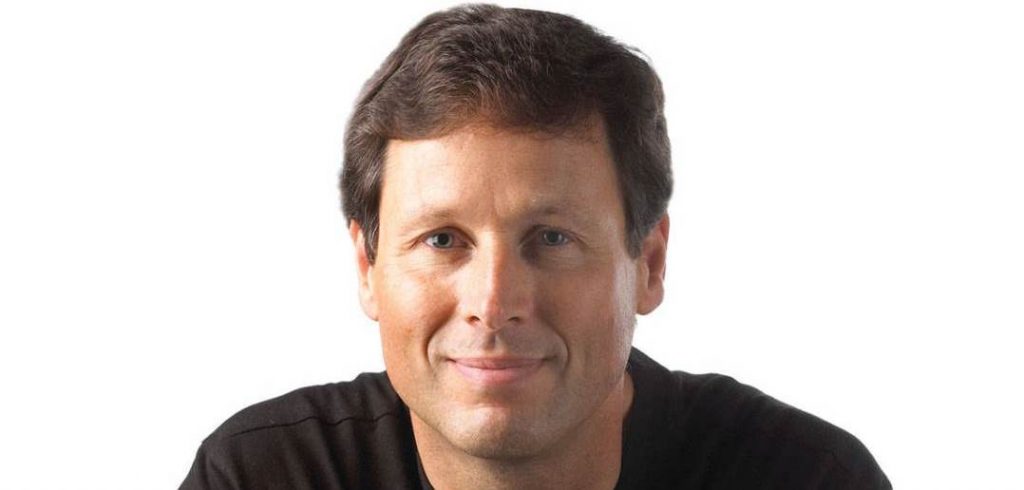Professional writer Peter Bowerman has the kind of easy-going, magnetic manner that’ll entice a perfect stranger to invite him to her house after a few minutes of talking to him for the first time. (I should know … that’s exactly what I did.)
He has a candid style and the ability to make everything he talks about sound easy. Certainly, that’s one of the secrets to his success as a writer — anything he touches becomes simple … doable … even captivating.
Once you read Peter’s account of his writer’s life and how he got there, you’ll see it, too. He’s clearly living the dream. Better yet, he laid his own path to get there. Though Peter started his writing career from scratch, his client list includes big names like Coca-Cola Co., UPS, and IBM. He also has four books to his name and has expanded into publishing, speaking, and coaching.
Peter’s newsletter on commercial writing has been called a “monthly java jolt of marketing adrenaline” by readers. One reader even said, “Peter has a way, with that ‘tongue out, thumbs-in-ears, neener-neener goading’ of his, to get me off my duff.”
That’s because Peter has an uncanny ability to make professional writing look easy. Good thing, since one of his passions is helping new writers get fired up to the point where they’re confident they can write for a living, like him. Not only that, but that it’s possible to make money off it — or rather, become a “well-fed writer,” as Peter’s website puts it.
It was a hot Georgia morning when I called Peter at his home near Atlanta. Not only did he generously share an account of his own path to writing bliss, he also revealed a quick and easy way to meet new clients. Add to that his unique perspective on why the conditions under which you work are sometimes more important than the work itself, and you’ll understand his recipe for carving out a writer’s life worth living.
As you read Peter’s interview, pay attention to his message about the companies that need good, clear communication materials. Note his advice on avoiding the “poverty mentality” so many writers get hindered by (including how to avoid it). And finally, learn why he thinks it can be dangerous to focus your writing efforts solely on your passion.
***
Tell me, Peter, how did you first get your start as a paid writer?
I always wanted to be a writer but I was never willing to starve at it, so I never cut my teeth on five cents a word writing for the church newsletter or anything. Then one day I came across Bob Bly’s book, Secrets of a Freelance Writer. A light bulb went on and I thought, “Hah! I’m going to do that.” So, I talked myself into the idea for a few years, and then I finally pulled the trigger at the end of 1993. I was paying all my bills as a writer in less than four months.
Wow, four months — now that’s saying something!
Well, I deliberately kept my expenses low, too. Which is a really interesting thing to tell people —if you can keep your expenses low when you’re just starting out, it will take you that much less time to get to where you want to be, where you’re paying all your bills as a writer. And you won’t have as much anxiety.
Good point. So what kind of writing were you doing way back in the early 90’s?
I was kind of a general commercial freelancer. So I was doing a lot of brochures, a few ads, newsletters, and some direct mail. You know, I never did traditional direct response the way some people think of it, unless you’re considering postcards or something like that. But never the long sales letter stuff. I basically tapped into the fact that businesses create an enormous amount of content, and that’s where I came in. I also started right out of the gate at 50 bucks an hour because I asked around and learned that was kind of the going rate.
What do you find to be the hardest part about writing?
I really love most everything about writing. But if I had to choose, I’d say the same thing a lot of writers have a hard time with, which is starting. Basically how to start a particular piece, how to begin this article, how to start that brochure, what the concept is, how to frame the piece, and so on. So that’s always the challenge. But once that’s in place the rest of it seems to flow.
Well said. What would you say is the easiest part about writing?
I seem to have been blessed with a sense of the right word to use on any particular occasion, and understanding the shadings of meanings between words. To me, that’s what makes writing so much fun because it’s almost like you have a toolbox full of words … you know, it’s almost like a plumber who has just the right wrench. You dig through your toolbox and see this one’s a little too big, this one’s too small. This one’s just right. And that’s what I enjoy — finding the perfect word to complete a sentence.
And what’s the most unusual writing project you’ve ever worked on?
The first thing that comes to mind is something I did early on in my career. I scripted the commemorative CD-ROM for the Korean War Veterans Memorial in Washington DC. I got the project through contacts. Obviously, someone who works for National Geographic, if they had to pick from all the projects they’d have loads of fascinating choices. But as a commercial freelancer, generally speaking, the work isn’t always scintillating. You know, it always pays well, but it’s up to you to make it interesting. So in this case, I had to read several books on the war and then I had to craft this narrative that accompanied the images, whether it was photos or archived footage from the National Archives in DC, and I visited the site as they were building it. And it’s actually the most dramatic of all the Memorials, although few people go to see it. So it was a fun piece and I remember getting paid pretty well for it.
You went after high-paying freelance writing jobs from the get-go. What made you believe this was possible when you started with zero experience?
You know, I have confidence in my skills. I feel like I’ve always had a natural ability to write. When I was in sixth grade, I wrote some little short story fiction piece that we ended up turning into a little play for the class that was kind of a hoot. And when I was 15, though I didn’t have a lot of experience, I was covering Little League baseball for three little local papers, so I’d go to the games and report. It was all about getting kids names in the papers.
But I never really seriously considered a writing career until I came across Bob’s book and it just kind of opened my eyes. I thought, “Hey, why not start at the top?” In terms of income, anyway. So I never had to overcome this sort of “poverty mentality” that a lot of writers have because they started writing at a level that paid so poorly. And when you get paid poorly, you make the connection that this is all your writing is worth. So I never had to overcome that.
But I think for a lot of people, when they start in the commercial field, the biggest challenge is overcoming their own internal sense of worth. They love the idea of making $75 or $80 bucks an hour, but they have a hard time getting that out when speaking with a client. But I was fortunate that I started in this field — commercial writing — and that’s what it paid, so that’s what I asked. And nobody flinched. And when you have enough people who don’t flinch, you start going, “Oh, I guess that’s the going rate here.”
Now let me ask — since e-mail wasn’t too prevalent in 1994 — how did you get clients? Did you just go door-to-door?
It was phone, mostly. I started by calling people up to make a connection.
Oh, the phone! I forgot about the phone.
Yeah. We actually did have phones way back then.
It’s funny you mention that though, because I’ve actually had some people over the years talk about how they were meeting at a client’s office, and when they finished the meeting they just stopped off at a few other offices and dropped off cards. I’ve been tempted to do that. I actually had a client meeting a few weeks ago in a suburban office complex and there were all these little businesses nearby. Even if it’s just a matter of saying, “Hey, I had a meeting with a nearby client and just wanted to drop off a card, no pressure.” You could hit up 10 businesses in less than half an hour. But yeah, I usually just pick up the phone.
You’ve self-published four books now — what has that experience taught you?
I’ve been self-publishing from day one. And the first thing that self-publishing will cure you of is perfectionism. Because if you want to get your book done, there are so many things you have to get done that you can’t be a perfectionist or it will never happen. But it’s like anything, you can learn. In 1999, when I was really starting the self-publishing adventure, I didn’t really know much about the process. But over time I have, just by osmosis, gotten really knowledgeable about it. I mean, you can’t help it when you do it multiple times. So as a result, I’ve been able to monetize that expertise in the form of coaching and that’s led to some other exciting directions.
In addition to commercial writing coaching, both on a group level, on a one-on-one level, and on an extended one-on-one level (like 10 hours at a time), I do self-publishing coaching. I’ve been coaching for 10 years now, but it just sort of unfolded organically. Part of that coaching was helping people do their book titles, subtitles, and their back cover copy. That led to the launch of TitleTailor.com, which is an off-spin of that specialty. And I’m now moving in the direction of breaking off a copywriting specialty doing naming, taglines, slogans, headlines, book titling, and subtitling for the corporate crowd.
Now a fun question. What’s one thing about you no one knows?
Money doesn’t motivate me. I like it. I’d rather have it than not. But after a certain point, it doesn’t get me out of bed in the morning. So, I don’t know that there’s any grand wisdom in all this, except that you have to like what you do. And notice I didn’t say you have to love what you do. Or be passionate about what you do. You just have to like doing it more than most other things.
Really, that’s sort of a cause of mine — this idea of finding your passion. On the surface, it’s such a wonderful notion. How can you argue with wanting to find your passion? But I think, in the end, it often ends up being a trap. Because people will stay in a job they hate, waiting for that thing that makes them blissful and rapturous all the time where they lose track of time and work becomes play. But if they just started doing something they pretty much like to do most of the time, they would be ahead of 95% of the world’s population. And they’d be a lot happier. And then from there, they can fine-tune it to find their ideal situation. So, I really think you should shoot for what you like to do, not what you love to do or what you’re passionate about doing. Because that’s a tall order when it comes to work.
You hit the nail on the head for something many writers struggle with — just finding a niche for instance. They can’t decide what it is they completely love, so they never start writing anything.
Right, and niche is another issue to a certain extent because I’m not one of those people who says, “You’ve got to pick a niche.” I mean, do I believe that if you have a niche you are going to be more successful? Yes I do. But it doesn’t help to force it either. A niche is, I think, something that you organically grow into, until you’re at the point where you go, “You know, I’m pretty good at this and I really enjoy it and I’d be happy doing just this.”
And really, for writers I say to a large extent it’s about the conditions under which you are working as opposed to the work that you’re doing, within reason. I would never suggest to someone that they be doing writing work that they absolutely loathe just so they can do it in their pajamas. At the same time, the appeal about this direction for me is more about the lifestyle than it is about the kind of work that I’m doing. I think that’s key. If it comes down to really doing something I love but having to go to a job every day and commute and deal with office politics, versus doing something I may not love as much but can do freelance, I would pick freelancing any day of the week. To me, that shows the primacy of freelancing as opposed to the actual content of it.
What’s your writing process?
I don’t really have a process. I guess it really differs largely on every project. Obviously there’s a certain amount of “soaking-in time” when you go through all your source material and let it percolate. And there is some value in understanding that a lot of the creative process happens on an unconscious level, and that you don’t consciously have to be minding store for things to happen. You can be off doing other things, other projects, and ideas will come to you.
I guess I always start by thinking about the reader. I’ll think, “How can I make this as interesting as possible?” That should always be the goal — to make something as interesting as possible. Even if it’s a new brochure for a plumbing company. There are ways to make that interesting — within context. After all, you know you’re never going to compete with a trash novel!
You know, in my seminars I ask people, “Why do we write anything?” And people will throw all these answers out: “To inform, to educate the, to move, to inspire, to sell.” And all that’s true. But there’s something even more fundamental as I see it. I say the reason we write anything is for it to be read. None of that other stuff happens until it gets read, so make sure you’re doing whatever you can to get it read and then you can educate, inform, move, inspire, whatever.
Tell us, whom do you admire most and why?
Two people come to mind right away. The first is Benjamin Franklin. I like to urge people to read a biography about him — he was such a fascinating man. A true Renaissance man. Curious, fully interested in learning, living without limits. You know, he created the first fire department, the first post office, and even the first library. So that’s someone I try to live like in terms of always being curious.
The other one that comes to mind is George Carlin. I really believe we lost a national treasure when he died a few years ago. He epitomized critical thinking. He could look at and take apart things that we normally accept without thinking. He could show us how ridiculous some of these things are. And of course, nothing was sacred. He took on religion, he took on bad words, he took on everything. He wasn’t afraid to look into things, and he did it with humor. So I guess I try to be that way as much as I can as well. I try to think critically. I try to look at things that I’m being told and question whether they’re true. I think about who’s telling me this and why are they telling me this? What do they want me to believe? I just think you need to live your life with your eyes open and too many people don’t.
Are there any words of wisdom you’d like to pass along to other writers?
Not all the successful writers out there are more talented than you. So you can make it happen if it’s something you really want to do. But also know that there aren’t any shortcuts. We seem to be a society that is addicted to shortcuts. I can’t tell you how many times I’m asked in an interview or on a coaching call, “What’s the fastest way to get this done?” Like they all want the Cliff Notes version so they can get there faster. So don’t get seduced by claims of quick riches. Work it hard and it will reward you and it’ll be a lasting career and not a shallow one.






